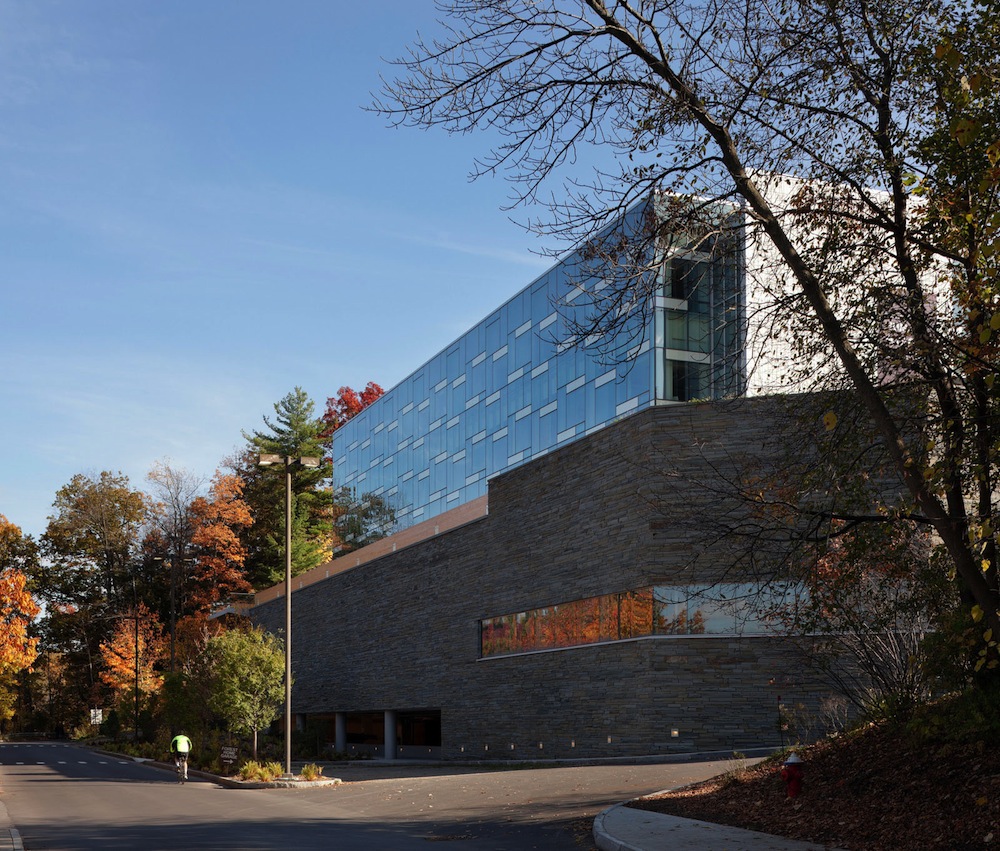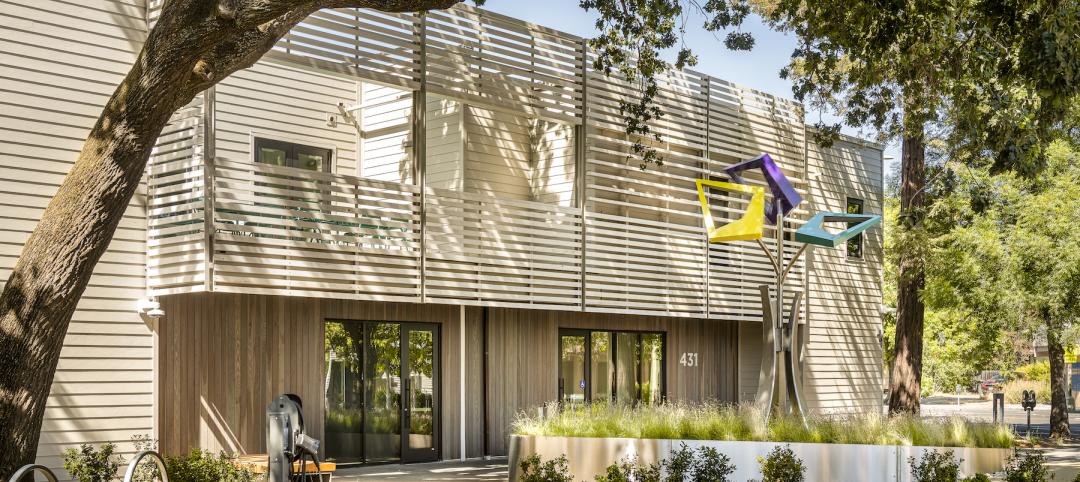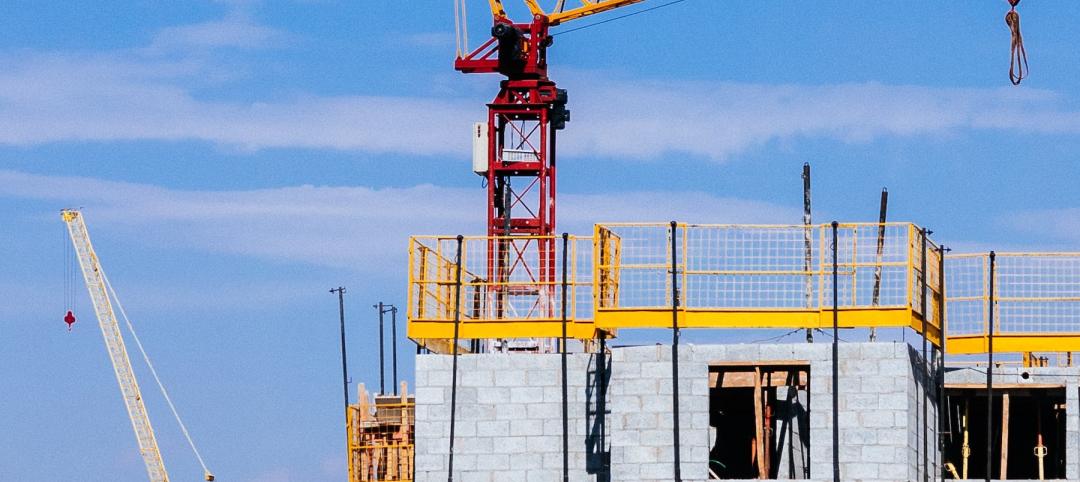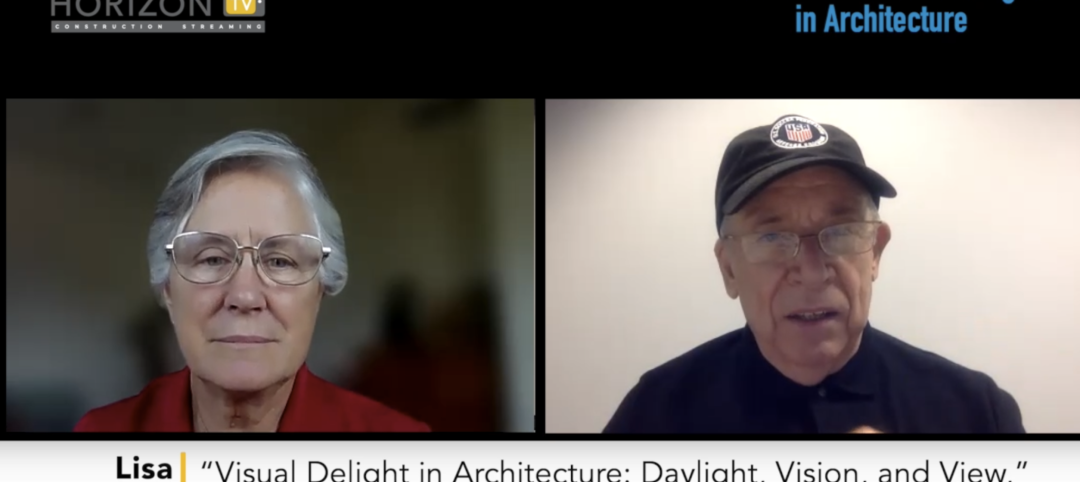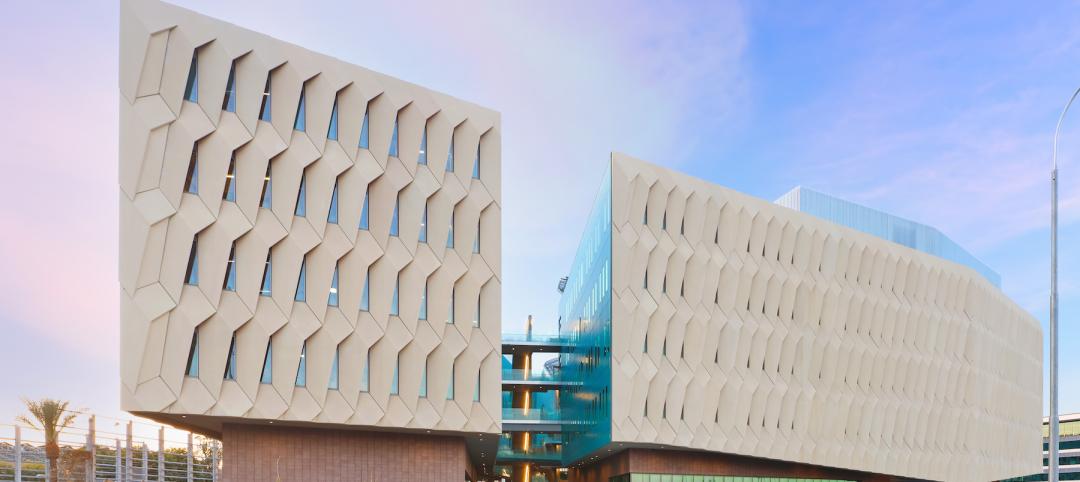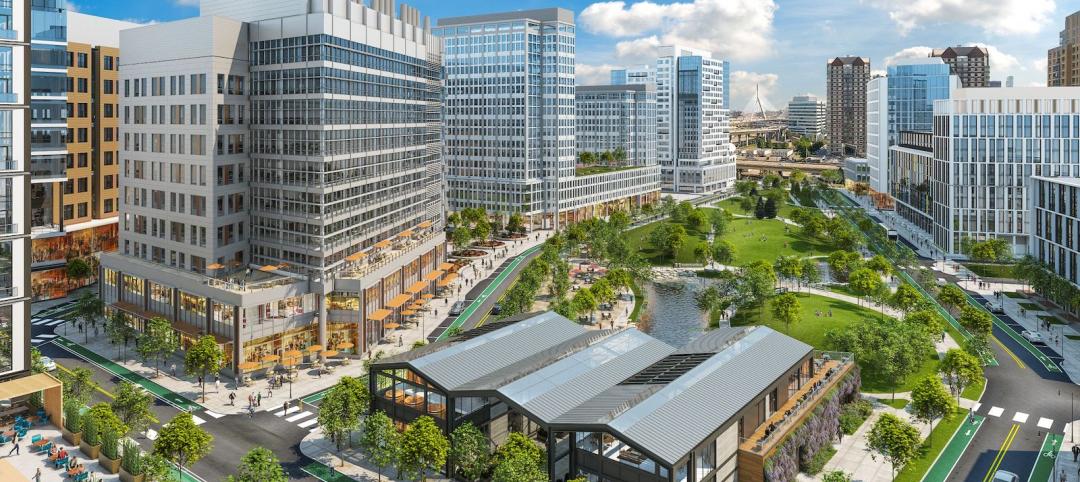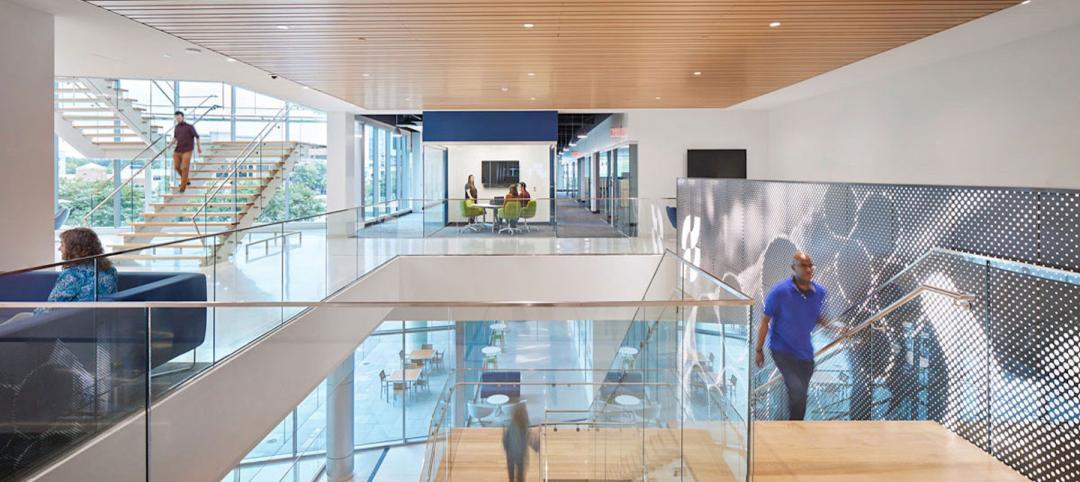Parking garages are no longer just nondescript concrete slabs. Earlier this month, the Green Parking Council (GPC) announced the first seven parking facilities in the country to achieve Green Garage Certification.
The title is determined by a rating system that factors in 48 elements of garage operation, structure, and technology, and recognizes sustainable practices in parking structure management.
The seven garages are located throughout the U.S. and have various uses. Four of them are office buildings: Brookfield’s Bank of America Plaza in Los Angeles; BG Holdco LLC’s BG Group Place in Houston; and Brookfield’s Silver Spring Metro Plaza and JLL’s Westpark Corporate Center, both in the Metro Washington D.C. area.
Cornell University’s Forest Home Garage in Ithaca, N.Y., is the lone school represented on the list, while Charles Square Hotel’s garage in Cambridge, Mass., and Och Ziff Capital Management Group Parking Acquisition Ventures’ Canopy Airport Parking in Denver are the only lodging and transportation venues on the list.
A variety of factors can make a parking garage green, from enhanced ventilation and energy-efficient lighting to greywater reuse and rainwater harvesting. Some have guidance systems to help drivers find their cars, others have tire inflation and electric car fueling stations, as well as car sharing and bicycle parking options.
The advantages of green garages not only help drivers but they also serve to benefit building owners. Reduced energy from lighting, ventilation, controls, and commissioning measures can keep operational costs around 25% lower than the national average.
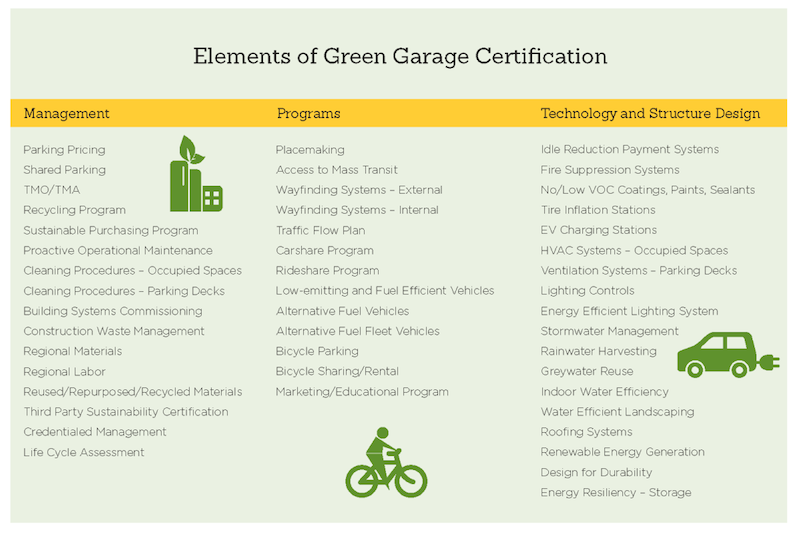
Related Stories
Green | Nov 8, 2022
USGBC and IWBI will develop dual certification pathways for LEED and WELL
The U.S. Green Building Council (USGBC) and the International WELL Building Institute (IWBI) will expand their strategic partnership to develop dual certification pathways for LEED and WELL.
Green | Oct 5, 2022
In California, a public power provider’s new headquarters serves as a test case for an innovative microgrid and for reducing greenhouse gas emissions
Sonoma Clean Power (SCP), the public power provider for California’s Sonoma and Mendocino Counties, recently unveiled its new all-electric headquarters.
Green | Oct 3, 2022
California regulators move to ban gas heaters for existing buildings
California regulators voted unanimously recently on a series of measures that include a ban on the sale of natural gas-powered heating and hot water systems beginning in 2030.
Mass Timber | Aug 30, 2022
Mass timber construction in 2022: From fringe to mainstream
Two Timberlab executives discuss the market for mass timber construction and their company's marketing and manufacturing strategies. Sam Dicke, Business Development Manager, and Erica Spiritos, Director of Preconstruction, Timberlab, speak with BD+C's John Caulfield.
Daylighting | Aug 18, 2022
Lisa Heschong on 'Thermal and Visual Delight in Architecture'
Lisa Heschong, FIES, discusses her books, "Thermal Delight in Architecture" and "Visual Delight in Architecture," with BD+C's Rob Cassidy.
Sponsored | | Aug 4, 2022
Brighter vistas: Next-gen tools drive sustainability toward net zero line
New technologies, innovations, and tools are opening doors for building teams interested in better and more socially responsible design.
Green | Jul 26, 2022
Climate tech startup BlocPower looks to electrify, decarbonize the nation's buildings
The New York-based climate technology company electrifies and decarbonizes buildings—more than 1,200 of them so far.
Sustainable Development | Jul 14, 2022
Designing for climate change and inclusion, with CBT Architects' Kishore Varanasi and Devanshi Purohit
Climate change is having a dramatic impact on urban design, in terms of planning, materials, occupant use, location, and the long-term effect of buildings on the environment. Joining BD+C's John Caulfield to discuss this topic are two experts from the Boston-based CBT Architects: Kishore Varanasi, a Principal and director of urban design; and Devanshi Purohit, an Associate Principal.
Building Team | Jul 1, 2022
How to apply WELL for better design outcomes
The International WELL Building Institute (IWBI) cites attracting top talent, increasing productivity, and improving environmental, social or governance (ESG) performance as key outcomes of leveraging tools like their WELL Building Standard to develop healthier environments.
Green | Jun 22, 2022
The business case for passive house multifamily
A trio of Passive House experts talk about the true costs and benefits of passive house design and construction for multifamily projects.


